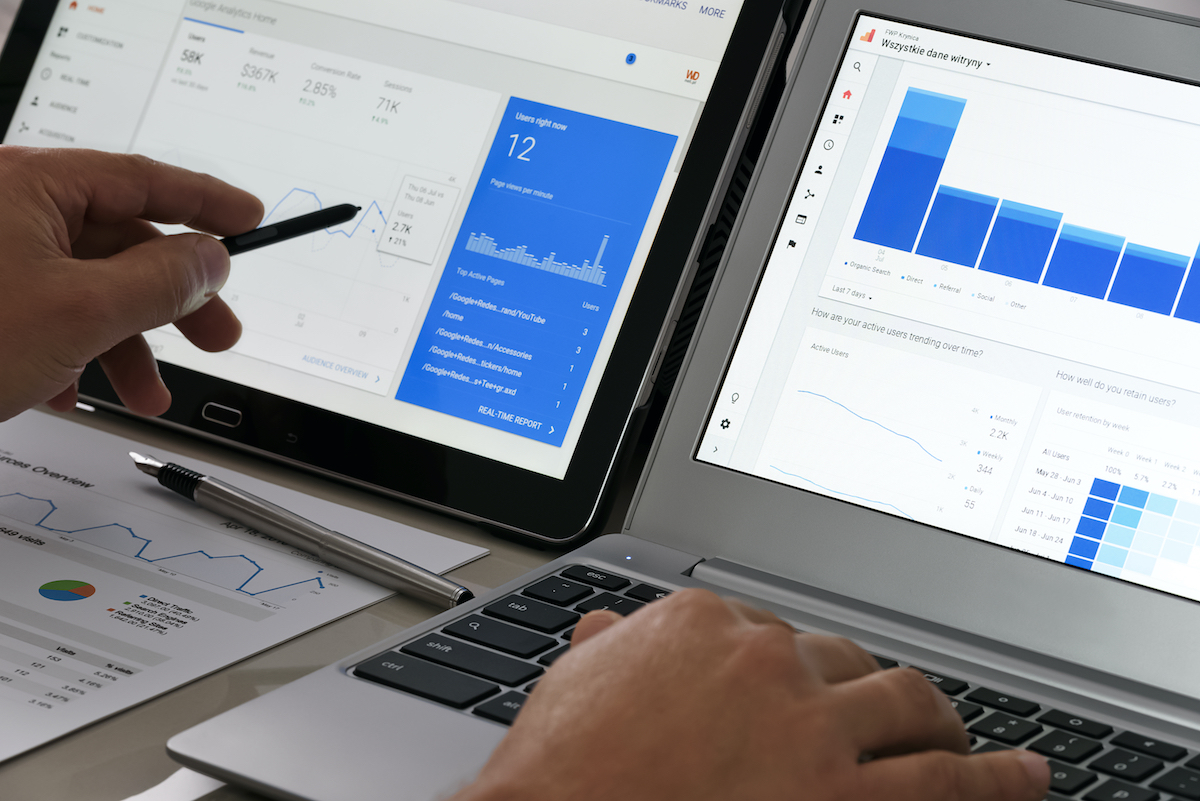Digital marketing is a process that uses technology to create, manage, and deliver marketing messages to consumers through various channels. Digital marketing includes online advertising, digital content marketing, and social media marketing. The main components of digital marketing are web 2.0 technologies such as blogs, wikis, social media, SEO and PPC. The definition of digital marketing has evolved over time but the essence remains the same – it is the use of technology to get more customers online and raise brand awareness. Digital marketing can be used in a wide range of industries, from small businesses and start-ups to national brands and global giants. There are many different techniques that can be used to achieve success with digital marketing, but the most important element is creating a clear strategy that targets your specific business needs. If done correctly, digital marketing can help you grow your business exponentially.
Types of digital marketing
Digital marketing has come a long way in the past few years. There are now so many different types of digital marketing that it can be hard to know which is right for your business. This article will help you decide which type of digital marketing is best for your company.
Search engine optimization (SEO)
Search engine optimization (SEO) is a process that can be used to improve the visibility of a website or web page in search engine results pages (SERPs). SEO is typically done by optimizing a website for certain keywords or phrases, and by constructing relevant metadata about the site. The goals of SEO are to make the website more visible and to generate traffic from search engines. SEO can be effective in increasing web traffic and revenue. By optimizing a website for targeted keywords, it may be possible to increase its ranking on search engine results pages. This can result in increased web traffic and potential customer leads. In addition, SEO can lead to increased brand awareness and a better SERP position on paid search engines.
Pay-per-click advertising (PPC)
Pay Per Click advertising, also known as PPC, is a form of online advertising that allows businesses to place ads on search engines and other online platforms in order to acquire customers. Unlike SEO which focuses on organic listings, PPC advertising is solely focused on the paid advertising portion. PPC campaigns can be very effective when targeting specific audiences and when executed correctly. There are a number of factors to consider when setting up a PPC campaign, including a budget, target audience, and ad copy. One common pitfall with PPC campaigns is overspending; if the budget is not carefully managed, it can result in wasted ad spending and lost revenue. It’s important to track performance metrics regularly in order to make informed decisions about how to optimize the campaign for success.
Social media marketing
Social media marketing is the process of using social media platforms to create and manage relationships with customers and followers. It is a powerful strategy for reaching and engaging customers on various social media platforms. The goal of social media marketing is to create a relationship with the customer that will result in them returning or recommending your product or service. There are many different strategies for conducting social media marketing, so it’s important to choose the approach that fits your company’s personality and goals. Some of the most common methods used in social media marketing include posting updates about company events, releasing new products, and providing customer support. Additionally, companies can use social media to build relationships with influential bloggers, tweet positive reviews of their services, and more. Social media platforms are also great tools for branding and publicizing your company’s values and mission.
Email marketing
Email marketing is the perfect way to reach your target audience and keep them updated on your latest product or service. By using an email marketing platform, you can create powerful and engaging email newsletters that will attract subscribers. You can then use these subscribers’ data to target future ads and promotions directly to them. Additionally, email marketing platforms offer tracking tools that allow you to see how your newsletter is performing and make changes as necessary. By using email marketing, you can maximize the reach of your messages and improve customer retention rates by keeping them updated on your latest happenings.
Affiliate marketing
Affiliate marketing is a business model where an online merchant rewards its affiliates (people or companies that promote its products and services) for sending traffic their way. When a person clicks on an affiliate’s ad and makes a purchase, the affiliate is rewarded with a commission. It’s a win-win situation for both affiliate and merchant – the affiliate gets paid for promoting products, and the merchant gets boosted traffic and increased sales. Affiliate marketing can be done using either paid advertising or organic (unpaid) traffic. Paid advertising is when an advertiser pays an affiliate to send them traffic. Organic traffic refers to traffic that comes from people who have found the advertiser’s product or service through natural search engines like Google or Bing.
Content marketing
Content marketing is an approach to marketing that creates and distributes valuable, informative content to attract and engage customers. Content must be relevant to your target audience, useful and engaging, and consistent with your brand’s voice and messaging. There are several key principles of effective content marketing:
- Creating valuable content that is interesting and useful to your target audience
- Creating unique, engaging content that is shareable
- Measuring the effectiveness of your content marketing campaigns
- Using social media platforms to promote your content
- Creating a consistent brand voice across all your content
Digital Marketing Tools and Platforms
Digital marketing tools and platforms are essential for any business looking to improve its online presence. There are a variety of options available, so it is important to select the right tool for your needs. Some of the most popular digital marketing tools and platforms include Google Ads, Facebook Ads, Hootsuite, and Google Analytics. Each has its own use case, so it is important to choose the one that will work best for your business.
Google Ads
Google Ads is an advertising program that allows businesses to place ads on Google.com and other websites. The program offers a range of different advertising options, including text, display, and video ads. Businesses can also create custom ads using templates or their own creatives. When a user clicks on an ad, Google charges the advertiser based on the campaign settings.
Google Analytics
Google Analytics is a web analytics service offered by Google. It allows website owners to track the activity of visitors on their websites. This data can be used to improve website design and navigation, as well as to determine the effectiveness of marketing campaigns.
Hootsuite
Hootsuite is a social media management platform that helps users keep track of their social media accounts from one place. It allows users to post updates, pictures, and videos from their various social media accounts in one place, and also provides tools for managing followers and networks.
Facebook Ads
Facebook ads are a great way to target potential customers by displaying your message directly to them on the social media platform. Ads can be targeted to specific demographics, interests, and locations. Plus, Facebook has a wide range of options for creatives, so you can create ads that look great and resonate with your audience.
In conclusion, digital marketing is the process of using digital channels to market a product or service. It includes the use of websites, social media, email, and other online media. Digital marketing is an effective way to reach a target audience and can definitely be a great way to promote your business.





